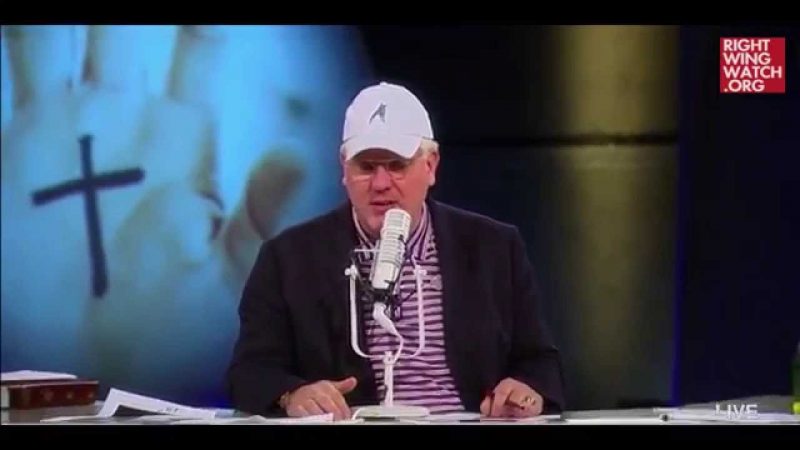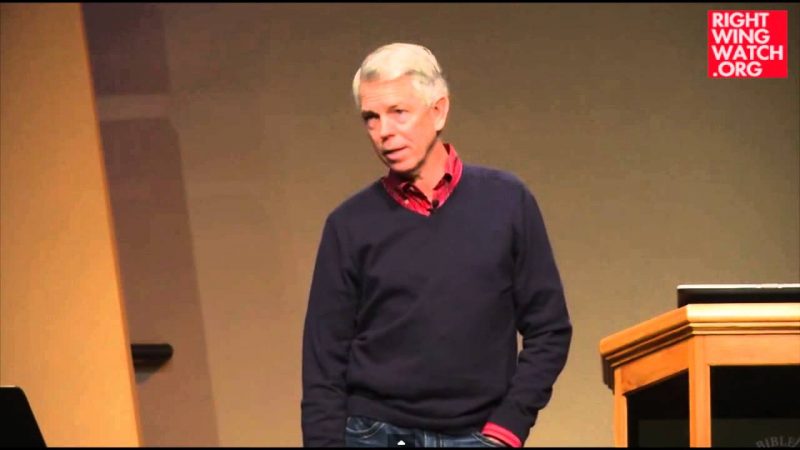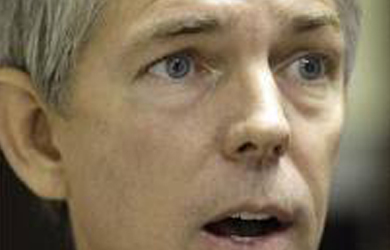After having watched hundreds of DVD specials and live presentations delivered by right-wing pseudo-historian David Barton and listened to thousands of his daily radio programs, we have concluded that his work is so routinely riddled with errors and misrepresentations that just about any factual claim that he makes ought to be checked for accuracy.
One of the claims that we have heard him make dozens of times in recent years is that the College Board’s Advanced Placement U.S. history standards have replaced topics such as D-Day, Adolf Hitler and the Holocaust with anti-American propaganda.
When Barton made this assertion again yesterday in a meeting that was broadcast on Periscope, we decided to finally look into it and, predictably, discovered that it is totally false.
“World War II is of interest to me because of what’s happened to AP History,” Barton said. “AP History is the last history course that kids will take in high school. Right now, colleges do not require any course in American history for graduation, so it’s the last course that most kids take. There’s 460,000 kids that take the course and they’re considered the brightest history kids in America. In the standards that came out for AP History in September 2014—the College Board puts them out because the College Board is the one that does the 47 AP tests for all classes—in those standards, they took out Hitler and the Holocaust and D-Day and Pearl Harbor and Patton and everything else. They have six statements in there and that’s all on World War II and one of the statements is, ‘America dropped the atomic bomb on Japan, raising questions about American values.’ And all six statements they have are all negative.”
If you look into this claim, it turns out to be so utterly false that the authors of the College Board’s AP U.S. history standards released a letter in 2015 debunking it.
As the authors explained, instructors who are teaching AP U.S. History courses are obviously already well-versed in history and would know enough to include the important topics like Hitler and the Holocaust when teaching World War II and therefore did not need to be instructed to do so by the AP guidelines:
The AP U.S. History course is an advanced, college-level course – not an introductory U.S. history course – and is not meant to be students’ first exposure to the fundamental narrative of U.S. history. Because countless states, districts, and schools have their own standards for U.S. history teaching, we did not want to usurp local control by prescribing a detailed national curriculum of people, places, and events. As a result, we created a framework, not a full curriculum, so that local decision makers and teachers could populate the course with content that is meaningful to them and that satisfies their state mandates (such as teachers choosing to discuss the heroic World War II experiences of Bob Dole, Daniel Inouye, or Dorie Miller).
Many of the comments we have heard about the framework reflect either a misunderstanding of U.S. history or a very limited faith in history teachers’ command of their subject matter. The Curriculum Framework was written by and for AP teachers – individuals who were already experts in U.S. history and its teaching. Based on feedback from other AP teachers outside the Curriculum Development and Assessment Committee, we did not think it necessary to specifically identify Martin Luther King, Jr., among the post-war “civil rights activists” mentioned in the framework. Any United States History course would of course include King as well as other major figures such as Benjamin Franklin and Dwight Eisenhower. These and many other figures of U.S. history did not appear in the previous AP framework, either, yet teachers have always understood the need to teach them. Critics who believe we have omitted them from the course are misunderstanding our document, and we request that they examine the AP Practice Exam as evidence of our determination that AP students must be exposed to a rich and inclusive body of historical knowledge.








